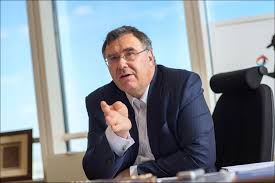
By Edson Baraukwa | Africa Guardian
G7 nations are slowing down the development of gas projects in Africa, much to the frustration of TotalEnergies CEO Patrick Pouyanné, who fears this will hinder the global energy transition. Pouyanné has strongly criticized the West’s “exclusion policy,” which cuts off funding for fossil fuel projects in Africa, warning that such restrictions could jeopardize efforts to achieve a balanced energy transition.
Speaking at the Offshore Northern Seas (ONS) conference in Norway from August 26-29, Pouyanné urged G7 countries to reconsider their stance on African gas projects. “I don’t understand what we’re doing in the West. We need to rethink this exclusion policy because we will only succeed in the energy transition through cooperation and finding practical solutions,” Pouyanné stated.
His sentiments echo those of the African Energy Chamber, which has condemned what it describes as “financial apartheid” against African energy projects.
Despite challenges, TotalEnergies reported a net profit of $9.5 billion in the first half of 2024, slightly down by 1% from the previous year. The company faced declining demand, lower refining margins, and reduced performance in its liquefied natural gas (LNG) operations. However, TotalEnergies remains committed to investing in oil and gas projects in Africa, particularly in Angola, Nigeria, and the Democratic Republic of Congo. The company is keen to revive two major initiatives: the Mozambique LNG project and the EACOP/Tilenga pipeline between Uganda and Tanzania.
TotalEnergies advocates for a “gradual and fair energy transition” that balances the growth of renewable energy with the continued use of natural gas. At the ONS conference, Amani Abou-Zeid, African Union Commissioner for Infrastructure and Energy, emphasized the importance of gas in Africa’s energy future. “We will continue to increase the share of renewable energy in our energy mix, but we cannot do without natural gas, which remains our transition fuel,” Abou-Zeid said.
In response to dwindling international investments, the African Petroleum Producers’ Organization (APPO) is planning to launch the Africa Energy Bank, a pan-African institution expected to open by 2025. Likely to be headquartered in Nigeria or Ghana, the bank aims to revive stalled fossil fuel projects across the continent by addressing the lack of financial resources.
___
